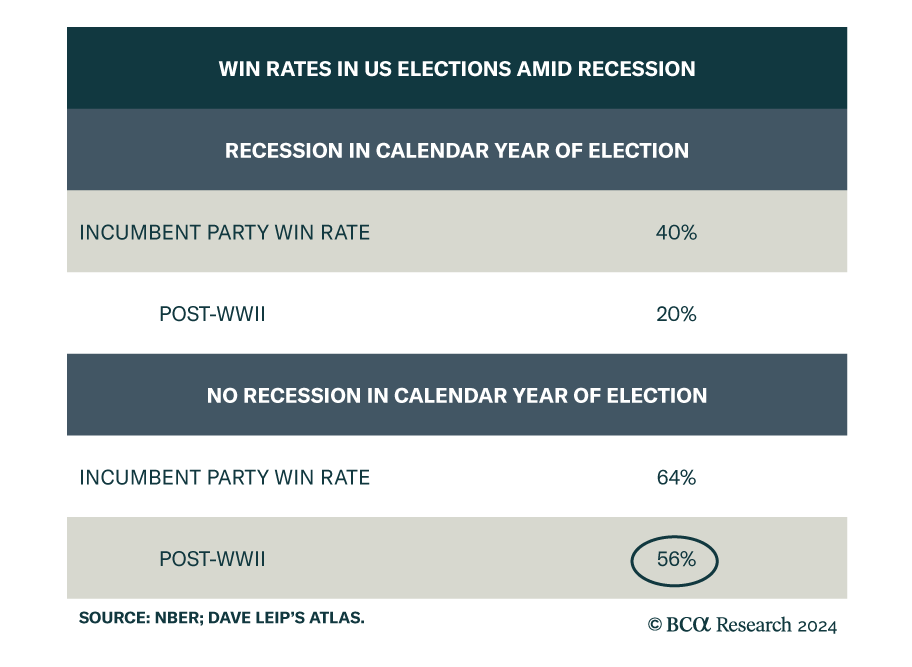Seven Geopolitical October Surprises
According to BCA Research’s Geopolitical Strategy service, seven surprises with non-negligible odds could tip the scale in favor of Republicans for the White House by November 5. One of them is a war between Israel and Iran.
Iran is still highly likely to retaliate against Israel. The Biden administration’s ceasefire talks have floundered since Hamas killed some Israeli hostages. Since then Israel has struck Iranian targets in Syria and Hezbollah targets in Lebanon, including a commander of the Radwan Force.

- Iran transferred short-range ballistic missiles to Russia in another sign that the Biden administration is failing to keep relations stable and achieve a ceasefire.
- Israel’s attack on Hezbollah confirmed our colleagues’ base-case view that the war would spread beyond Gaza but not all the way to a regionwide war centering on Iran and the Persian Gulf.
- The attack on a Saudi oil tanker in the Red Sea (not to mention the Greek tanker) proved that the current trajectory of conflict is causing minor oil shocks. These incidents can become larger or more frequent while remaining “minor” from a global macro point of view. But they could also become “major” under the wrong circumstances.
- Our colleagues pegged the risk of “major” oil shocks at 37% for this year. It should go up after the election. Major shocks would involve Iranian attacks on significant oil supply and distribution in Iraq or the Persian Gulf region, whether preemptively or in reaction to Israeli or American attack.
- It is possible for Israel to agree to a ceasefire with Hamas and still escalate with Hezbollah or even Iran, and for this to happen before the US election. Israel is focused on its long-term security and the Biden administration may not succeed in restraining Israel now that it is mobilized and has an opportunity to strike Iran and its proxies.